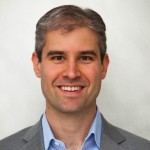Nearly six years ago, I, along with Dr. Jason Hwang and my mentor Clayton Christensen, founded Innosight Institute, a non-profit, nonpartisan think tank dedicated to improving the world through disruptive innovation.
Today, I’m proud to announce that we are changing the name from Innosight Institute to the Clayton Christensen Institute for Disruptive Innovation to signal a new era in our quest to identify innovative solutions to society’s most challenging problems. With this change, it also allows us to honor properly my mentor Clayton, the architect of the theories of disruptive innovation that remain at the heart of our work.
As he has done for so many, Clayton changed my view and understanding of the world while I was a student of his at the Harvard Business School. He then inspired me to join him in changing that world. We started together by writing a book with Curtis Johnson on public K–12 education—what became Disrupting Class: How Disruptive Innovation Will Change the Way the World Learns.
A year into the writing, Clayton pulled me aside and said: Michael I don’t want this to be just another book by an academic that looks nice, but collects dust on people’s shelves and doesn’t have impact. We need to start an organization to use the book to change the world.
And so, along with Jason, who was writing a book with Clayton about how to solve the problems that plague our nation’s health care system—what became The Innovator’s Prescription: A Disruptive Solution for Health Care—we co-founded Innosight Institute in May of 2007.
What began as an entrepreneurial adventure, has grown over the last six years into a resource for those who seek to transform the world: a source of theory to explain the road ahead and for a common language to frame the dialogue; a voice that informs policymakers and, quite frankly, one that has the privilege of researching and chronicling all the exciting innovations that the doers in the field are putting into action to create that change.
In education, the conversation over how to improve our schools has changed dramatically since we first published Disrupting Class. Transforming our schools to put each student at the center of her learning, so that each child can dare to dream and all students will realize their fullest human potential, is itself no longer a distant dream.
We have made big strides in shaping the conversation not only in K–12 education, but also in higher education. Our work helps explain the rise of such things as massive open online courses (MOOCs) and competency-based learning, as well as to frame their potential pathway for making higher education affordable and student-centric, but also to warn against possible pitfalls in the road ahead.
In health care, we have made strides in understanding how not just to allow people to afford health care, but how to make health care fundamentally affordable. We also have ventured into thinking about green energy and how to catalyze our economy to produce more jobs.
For me personally, it’s also been gratifying to build a talented team focused on solving society’s most pressing problems. Entrepreneurs often reflect on how the best part of their journey is the people with whom they work in service of a common mission. I couldn’t agree more. What started as three of us in a kitchen in Watertown, Mass., is now a burgeoning, dynamite team that makes our work a joy. Clayton has written that, “if you want to help other people, be a manager. If done well, management is among the most noble of professions.”
I can only hope the people with whom I work feel that I’ve been helpful to them. Regardless, I can’t help but think that by having the privilege to work with all of them, I have the best deal of all.
In celebrating our 5th Anniversary a few months ago, Clayton said, “From the beginning, the Institute has stayed true to its purpose.” The key to this, he remarked, was because solid theory has been at the center of our work—and using solid theory serves as “a beacon to which we can look for solutions and try to change the world in a positive way.”
As we march forward with our ambitious but clear mission—to shape and elevate the conversation surrounding society’s most pressing problems through rigorous research and public outreach to redefine the way policymakers, community leaders, and innovators address the problems of our day—those theories remain our beacon, and our new name pays homage to them and the man who brought them to light.

